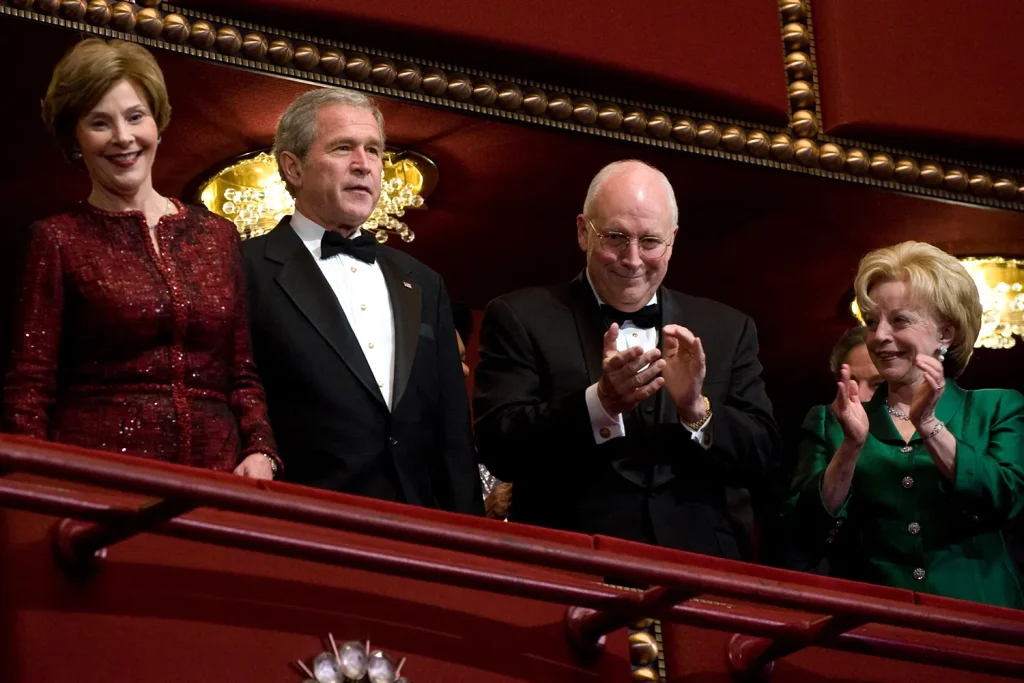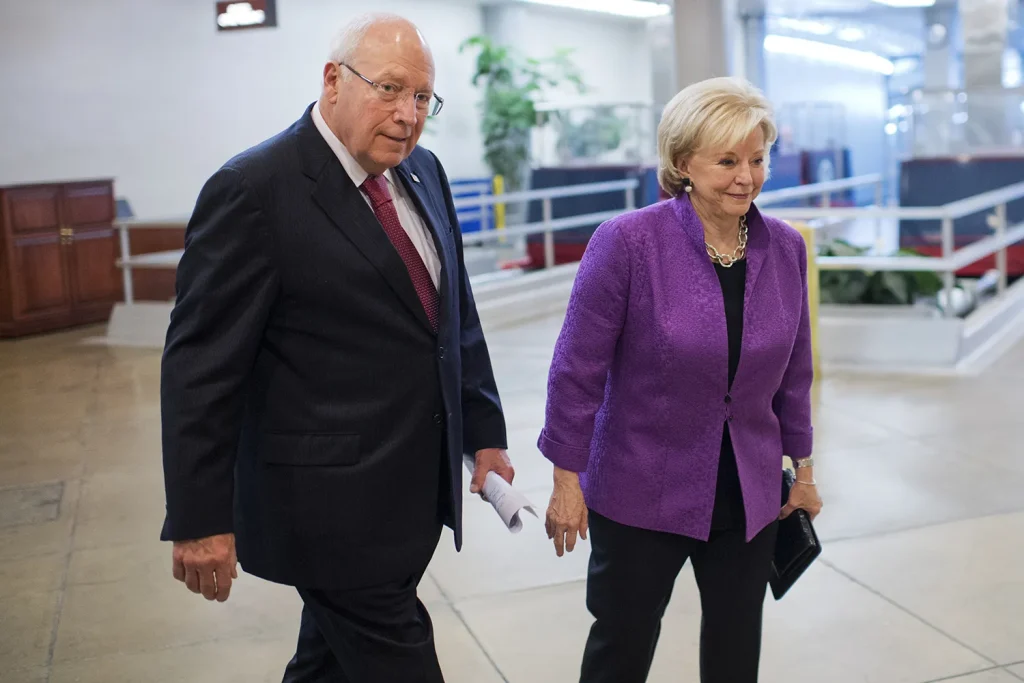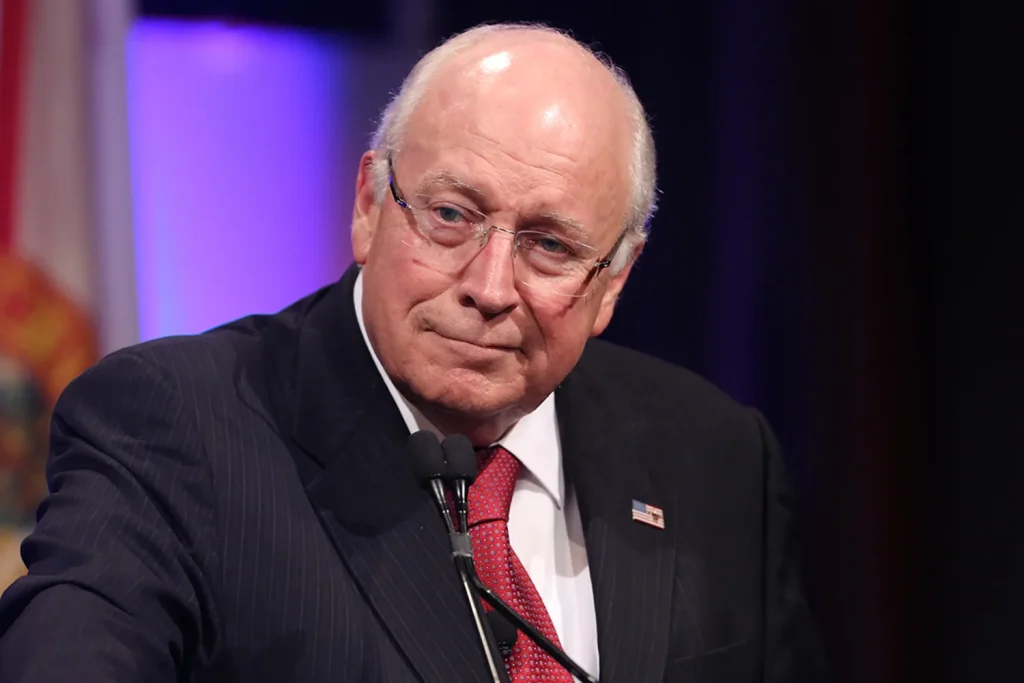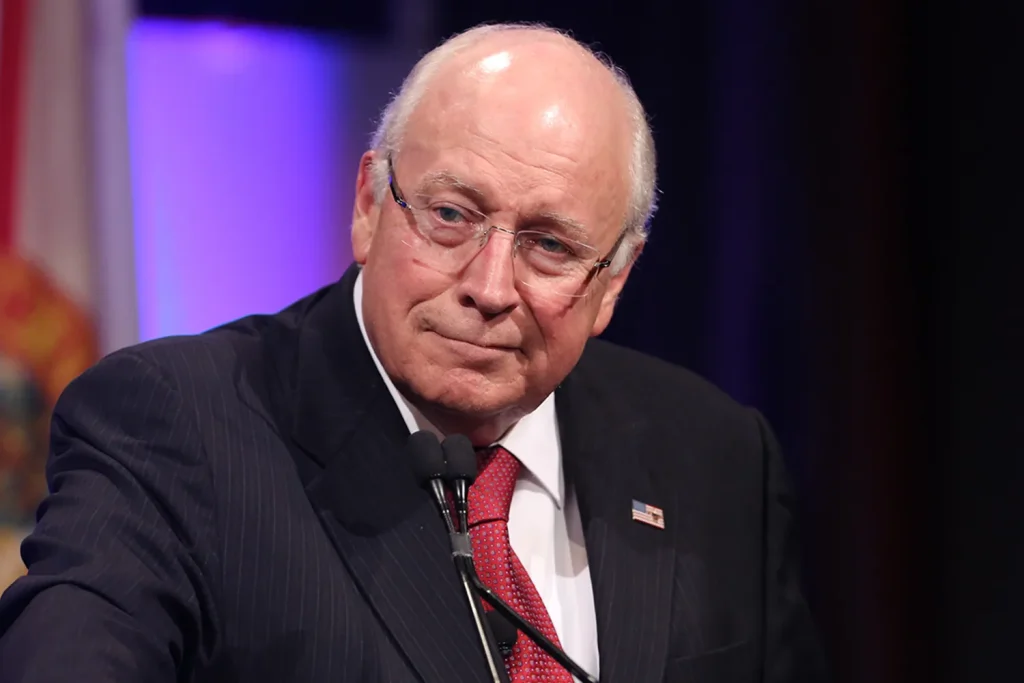Former Vice President Dick Cheney Dies at 84 From Pneumonia and Heart Disease After Surviving Five Heart Attacks and a Transplant
The news of his passing arrived quietly but with the weight of a long-stormed life behind it. Dick Cheney, the 46th Vice President of the United States, died on November 3, 2025, at age 84, his family revealed in a statement citing “complications of pneumonia and cardiac and vascular disease.” Surrounding him were loved ones — his wife of 61 years, Lynne Cheney, his daughters Liz and Mary, and other family members who cared deeply for a man whose personal battles matched the intensity of his public life.

In many respects, Cheney’s story reads like a catalogue of American power and persistent illness. He survived five heart attacks, the first at just 37 years old in 1978, and underwent a heart transplant in 2012. That kind of physical fragility, juxtaposed with a reputation for steel-clad political resolve, created a rare tension in his life. Over decades, he weathered personal setbacks, health scares, and national crises — and he left a legacy that will be debated for years to come.
Born in Lincoln, Nebraska, and raised in Wyoming, Cheney’s ascent through American politics was relentless. A graduate of the University of Wyoming, he entered public service during the Nixon era and steadily climbed the ladder: U.S. Representative from Wyoming, White House Chief of Staff under President Ford, Secretary of Defense under President George H. W. Bush (where he oversaw the first Gulf War), and eventually Vice President under President George W. Bush from 2001 to 2009. His tenure in the vice presidency is often described as the most powerful in U.S. history, emblematic of an executive-branch role transformed by a man unafraid to wield influence.
Yet for every headline-making decision or strategic move — whether around the response to 9/11, the wars in Afghanistan and Iraq, or sweeping surveillance policies — there was, beneath the surface, a man contending with repeated, life-threatening health challenges. His earliest heart attack did not end his ambition; if anything, he pressed on, even as his body faltered. By 2010, his fifth heart attack led directly to a transplant two years later — a medical milestone but also a public sign of his physical vulnerability. After the surgery, he publicly called the donor’s gift “the gift of life itself.”

When the statement from his family detailed the cause of death — pneumonia and cardiac and vascular disease — it touched a lifetime of medical struggle. In many ways, this end is reflective of a long arc: a man who played at the highest levels of power, yet whose body repeatedly reminded him — and the public — of mortality. The choice to list multiple, layered conditions rather than a single crash-event underscores the slow, cumulative form of decline that he experienced. It was not sudden collapse, but a gradual reduction of a physical foundation that had already been weakened decades ago.
The moments of his passing — surrounded by family, quietly leaving life at 84 — carry a certain poignancy. One daughter, Mary Cheney, has long been part of the public story, as has his elder daughter Liz Cheney, who followed him into politics. Their presence at his side speaks to the personal side of a man often defined by policy and power. And those private scenes — for the last days of one of America’s most consequential figures — remind us that the life of service is also the life of mortality.
There is also a legacy of contradiction and evaluation. Cheney remains a polarizing figure — praised by supporters for his firmness in the War on Terror and his shaping of the executive branch, criticized by opponents for his role in decisions like the Iraq War and surveillance expansion. His death invites reflection on both his achievements and his missteps. Some will remember the strategic triumphs; others will focus on the costs. But no matter the frame, the chapters of his public service, mixed with his private struggle, form a remarkable American story.
In his later years, despite his health issues, Cheney stayed engaged in public life. He endorsed his daughter Mary’s stand on inclusive rights, and even in retirement remained a voice on national security and Republican politics. His public image shifted in some ways — from the hyper-secretive power broker of the Bush era to a senior statesman willing to critique former colleagues and sit out partisan lines. Yet the core of his career remains tied to the early 2000s and the expansion of presidential power in the name of national security.

For historians and citizens alike, Cheney’s passing will mark a turning point — a moment to look back at how the United States changed when one of its most influential vice presidents passed away. Institutions will reflect on the vice presidency and how Cheney’s tenure reshaped its contours. Policymakers will examine how decisions made in his era continue to reverberate through today’s global and domestic landscape. And medically, his story remains a dramatic example of someone living decades beyond major heart disease through modern medical intervention — but ultimately surrendering to the natural limits of the human body.
In the end, Dick Cheney’s death is not simply the closing of a career — but the end of a deeply entangled life of ambition, health battles, public service, and legacy. His wife, daughters, and grandchildren now carry forward memories not only of a leader but of a father and husband who fought for his country even as he fought for his own survival. The narrative of his life will continue in classrooms, memoirs, and the halls of power — his death underlines that even those who hold the reins of authority are subject to time and fragility.
As the nation pauses to acknowledge the passing of one of its most potent figures, it is fitting to note that the last breath of Dick Cheney was drawn in the company of those he loved. His legacy may divide opinion, but the personal detail of his death — amid illness, surrounded by family — makes unequivocally human the story of a man who spent much of his life shaping history.


